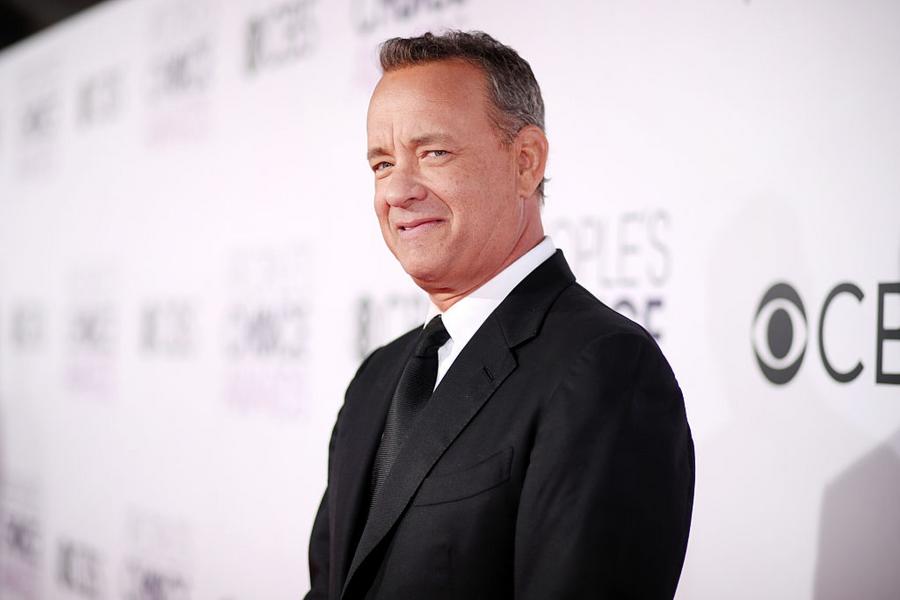It seems as though Hollywood stars that anchor feature films and TV shows almost try to get you to believe that every project, even the ones they're paid tens of millions of dollars to star in, are labors of love that are made out of the simple passion for telling a story. That's especially the case when the project in question is being promoted on never-ending global press tours. But every once in a while, you get a more honest perspective.
In a recent interview with the New York Times Tom Hanks was surprisingly candid about the reason he agreed to star in the "Da Vinci Code" film franchise: An enormous payday.
As you know, Tom Hanks is one of the most commercially successful movie stars of all time, with an almost countless string of hits to his name. He's been able to use that success to make lots of movies about subjects that interest him – World War II and the space program being two of his most well known passions.
In the recent NYT interview Tom admitted that one of his highest profile starring roles, as well as its two sequels, were just "commercial enterprise[s]" that he did strictly for the money.
That would be 2006's "The Da Vinci Code," as well as its two sequels, 2009's "Angels & Demons" and 2016's "Inferno," all based on the popular historical conspiracy thrillers by Dan Brown.
If you're old enough to remember the phenomenon of "The Da Vinci Code" back in the early 2000s, you remember how there were lots of heated debates over its historical accuracy. But now Hanks is admitting he thinks it's all "hooey" and "about as accurate to history as the James Bond movies are to espionage." Hanks went on:
"I mean, Dan Brown, God bless him, says, 'here is a sculpture in a place in Paris! No, it's way over there. See how a cross is formed on a map? Well, it's sort of a cross.'"
Hanks starred in the films, all directed by Ron Howard, as Harvard symbologist Robert Langdon, who had a penchant for getting involved in murder mysteries solved by use of esoteric historical clues and riddles.
For his work in the movies, Tom was indeed paid very randomly.
His paycheck for the first movie was a reported $18 million. He then earned $25 million for "Angels & Demons," a salary he matched for "Inferno." Combined, that means Tom earned…
$68 million
From the "Da Vinci" franchise.
So at least he got plenty of money to deliver dialogue he evidently didn't think was much good.

Christopher Polk/Getty Images
"There's nothing wrong with good commerce, provided it is good commerce … By the time we made the third [movie], we proved that it wasn't such good commerce."
That's a reference to the diminishing returns of the third movie in the series' box office performance. Neither of the other two Dan Brown novels the films were based on had quite the same blockbuster impact as "The Da Vinci Code," and their big screen adaptations didn't do quite as well commercially, despite the success of the first movie.
In 2006, "The Da Vinci Code" was the second highest grossing release of the entire year, with a worldwide box office take of $760 million. Three years later, Langdon fever had cooled somewhat, and the worldwide box office of "Angels and Demons" was a hair under $486 million. By the time "Inferno" rolled around in 2016, it made a relatively paltry sum of $220 million.
Still, Hanks doesn't regret making the movies, and he certainly doesn't regret the big paydays he got from each one. He even shared a funny memory of celebrating a birthday on the set of the first movie, and the surreal experience of shooting in the Paris Louvre:
"We were shooting in the Louvre at night. I changed my pants in front of the Mona Lisa! They brought me a birthday cake in the Grand Salon! Who gets to have that experience? Any cynicism there? Hell no!"
Hanks isn't likely to play Langdon again, especially since the character has since reappeared for a streaming series adapting yet another Dan Brown novel (2021's "The Lost Symbol"). And we now know that Hanks probably wouldn't be eager to reprise his role without significant financial incentive.
/2015/11/hanks.jpg)
/2014/02/GettyImages-185417578.jpg)
/2019/05/th.jpg)
/2015/08/GettyImages-75577779.jpg)
/2017/09/GettyImages-120425756.jpg)
/2015/07/GettyImages-466403226.jpg)
/2016/02/GettyImages-2107467-e1579977819418.jpg)
/2019/08/ng.jpg)
/2010/02/Ron-Jeremy.jpg)
:strip_exif()/2020/06/taylor.png)
/2015/01/GettyImages-512607330.jpg)
/2010/01/GettyImages-149907344.jpg)
/2020/01/Tammy-Faye-Messner.jpg)
/2019/09/af.jpg)
/2012/04/Pat-Robertson-1.jpg)
/2019/09/Taylor-Fritz.jpg)
/2014/04/GettyImages-909023006.jpg)
/2015/12/GettyImages-56543209.jpg)
/2010/09/Tony-Curtis-pic.jpg)
/2021/12/mlk.jpg)
/2020/01/lohan.jpg)
/2021/09/Jessica-Hahn.jpg)
/2020/05/kandi-1.jpg)